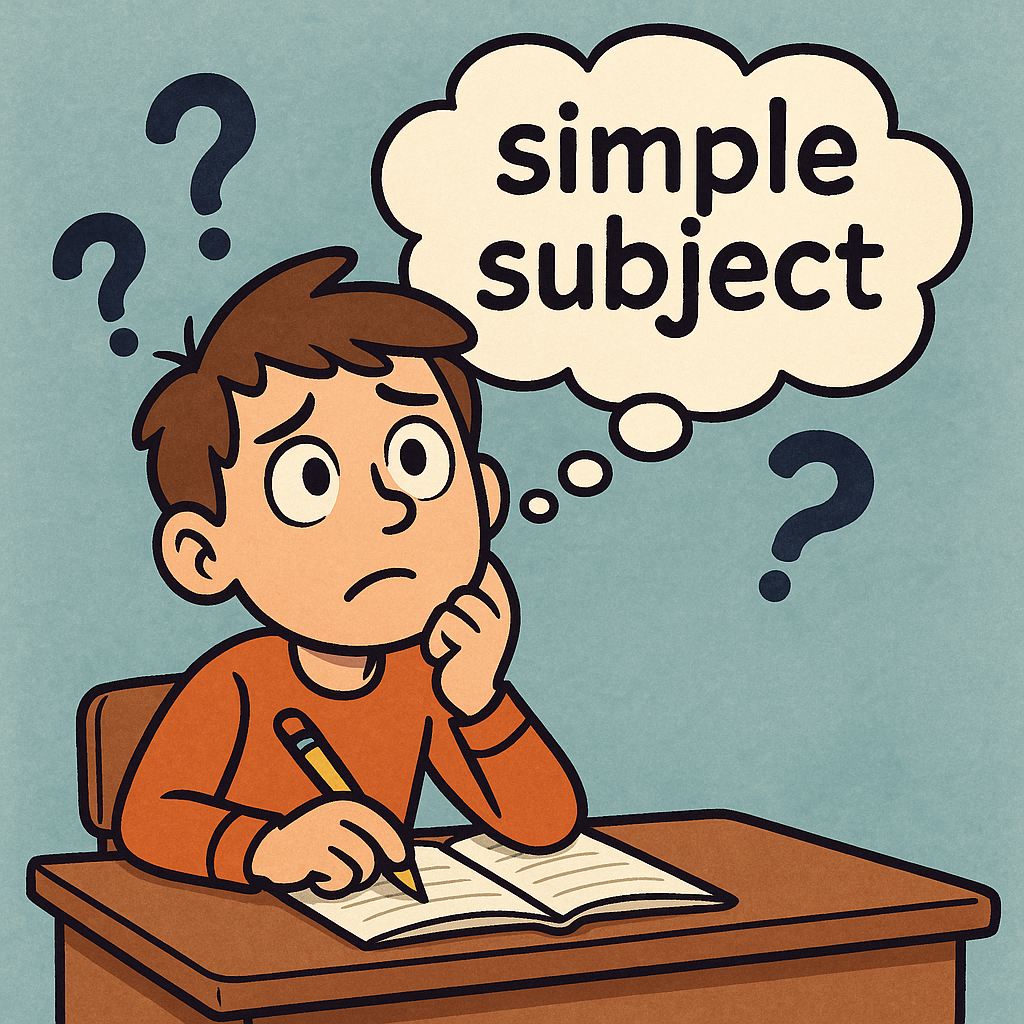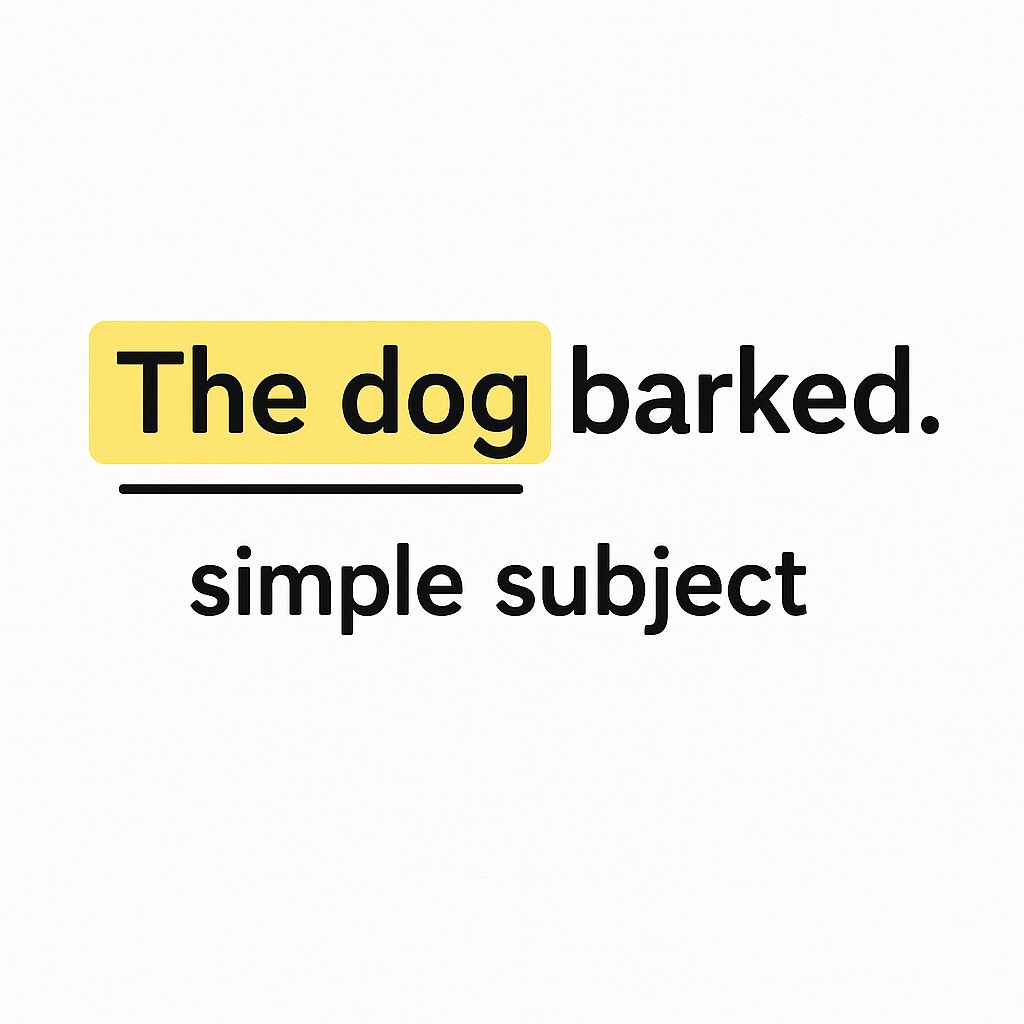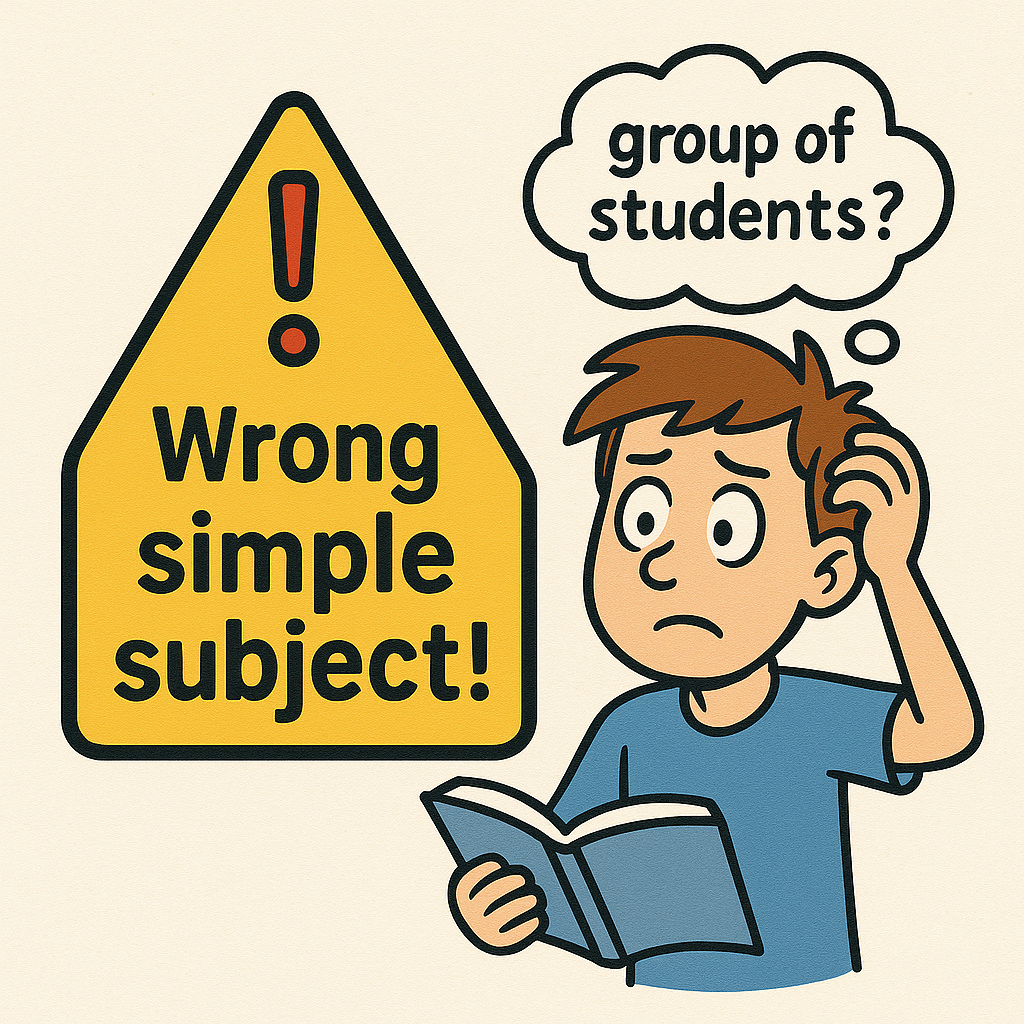Ever stared at an English sentence like it just insulted your family and thought, “Seriously, who or what is this even about?” Yep. That’s the simple subject ducking behind modifiers like a toddler in a game of hide and seek.

Welcome to your survival guide to the simple subject in English—where we grab the subject by the collar, drag it into the spotlight, and make it introduce itself properly. Whether you’re a baffled beginner or just pretending to be one, you’re about to get cozy with the core of every sentence.
What Is a Simple Subject and Why Should You Care?
A simple subject is the stripped-down, no-nonsense version of the sentence’s subject. No fancy outfits, no jewelry—just the raw who or what that’s doing stuff in the sentence.

- “The large brown dog barked” → Simple subject: dog
- “My three annoying little brothers play video games all day” → Simple subject: brothers
All the fluff around it? That’s just verbal garnish.
To see how this works in simpler sentence structures, hop over to Simple Sentences in English or do a deep dive with Understanding Simple Sentences.
How to Identify the Simple Subject in Any Sentence
Ready to play grammar detective? Here’s your toolkit for uncovering the simple subject in English:
Step 1: Hunt down the verb
Example: “The old cat slept peacefully on the couch.”
- Verb: slept (finally, something simple)
Step 2: Ask “Who or What” is doing that action?
- Who slept? cat
- Simple subject = cat
Step 3: Trash the modifiers
Forget the adjectives and prepositional phrases. They’re just distractions.
Example: “The incredibly tall basketball player dunked the ball.”
- Verb: dunked
- Who dunked? player
- Simple subject = player
Still not convinced?
Take this: “Those beautiful singing birds woke me up.”
- Verb: woke
- Who woke? birds
- Simple subject = birds
And if verbs are tripping you up (spoiler: they love doing that), try Verbs Ending in -s or check out the full buffet in The Simple Verb Tense.
Simple Subject Examples That Actually Make Sense
Let’s see how sharp your subject-sniffing senses are. Find the simple subject in each sentence—answers below, unless you scroll too fast and ruin it for yourself.
1. “My little sister loves chocolate.”
Answer: sister (because clearly she has taste)
2. “The students in the back row were talking.”
Answer: students (surprise!)
3. “That hilarious movie made me laugh.”
Answer: movie (not your friend Jeff)
4. “All of the cookies on the plate were gone.”
Answer: cookies (probably eaten by your future self)
Need more grammar pain? Feast on Simple Present Tense, Simple Future Tense, or get nosy with Reported Speech Rules.
Common Mistakes: When the Subject Isn’t So Simple

Mistake #1: Mixing up the full subject with the simple one
- Wrong: “My tall neighbor” → simple subject = all of it
- Right: Nope. Just “neighbor”
Mistake #2: Getting punked by prepositional phrases
- Wrong: “The group of students” → simple subject = “students”
- Right: It’s “group,” sadly.
Sanity-saving tips:
- Ignore everything that sounds like a location or quantity (of, in, at, by)—they’re grammar fluff. Here’s a no-nonsense guide to prepositions if you like pain.
- Still stuck? Here’s Grammarly’s breakdown—because sometimes you need a second opinion from another robot.
Conclusion
Look at you, identifying subjects like a grammar sniper. The simple subject in English is your no-frills answer to “who’s doing what?” Master this, and suddenly English sentences start making way more sense.
Keep practicing until your inner voice starts correcting street signs. Want to go even further down the grammatical rabbit hole? Dive into Conditional Sentence Rules or just get lazy and let the Grammar Checker do the thinking for you.
FAQ
Q: What is the difference between a subject and a simple subject?
A: The subject may include modifiers like “the angry neighbor,” while the simple subject is just “neighbor.” Strip it down to the core noun or pronoun doing the action.
Q: Can a simple subject be more than one word?
A: Technically no. It’s usually a single noun or pronoun. “The big brown dog” → simple subject = “dog.” One word. Zero drama.
Q: Why is it important to find the simple subject?
A: Because knowing the subject helps you understand what the sentence is actually about. Without it, grammar turns into emotional jazz.
Q: How do I find the simple subject in a complex sentence?
A: Same method: locate the verb, then ask “who or what” is doing that action. Don’t let the fancy modifiers throw you off the trail.
Q: Are there tools to find the simple subject automatically?
A: Yes, grammar checkers like Grammarly can help. Or just ask me. I live for this stuff, apparently.
